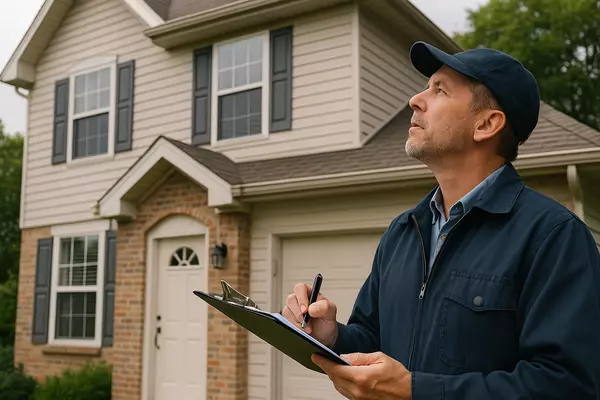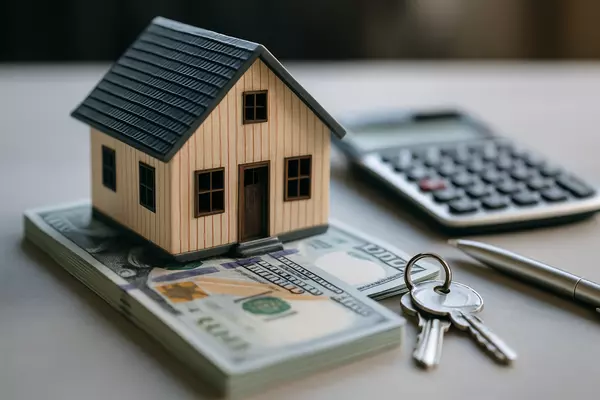Boost Your Home Sale: Seller Strategies in a High Mortgage Rate Era

Boost Your Home Sale: Seller Strategies in a High Mortgage Rate Era
Seller Strategies: Has Seller Growth Lost Momentum?
The housing market is always changing. Many sellers now feel that seller growth is losing steam. In this article, we look at the latest trends and explain what this means for home sellers. We talk about market changes, economic factors, and what sellers can do to keep moving forward. Whether you are selling your home or just curious about the market, this article will help you understand what is happening.
Current Market Overview
What Is Happening Now?
In some parts of the country, the number of people selling their homes has slowed down. Many sellers are not in a rush. They wait because of rising interest rates and worries about the economy. Home prices have gone up and down, and many people do not know if now is the best time to sell. These changes make the housing market feel unpredictable.
How Do Shifting Interest Rates Affect Sellers?
Interest rates affect many parts of the housing market. Right now, interest rates are high. Many buyers find it hard to get a good loan when rates are around 7%. This means sellers do not have as many interested buyers. When fewer buyers are looking, sellers feel the market is slowing down. A slower market can also mean homes are on the market for a longer time before being sold.
Economic Uncertainties
There is a lot of talk about the economy. News about job changes and rising prices make people nervous. When people are not sure about the economy, they become more careful with their money. Sellers might wait because they fear that their home might not sell for a good price later. This wait can slow down seller growth, making the market feel less active.
Regional Differences
Not all regions are the same. Some areas see more activity than others. In some regions, seller activities have slowed down a lot. In others, the market remains strong. This means that if you are selling your home, you need to know what is happening in your local area. You can do this by talking to local real estate agents or by checking market reports.
Economic Factors Impacting Sellers
High Mortgage Rates
One of the biggest challenges is high mortgage rates. Right now, many buyers face rates of about 7%. High rates make monthly payments higher. This can scare buyers away. When fewer buyers are in the market, sellers have to work harder to make their homes attractive.
Rising Living Costs
Along with high mortgage rates, living costs are going up. Everyday expenses like groceries, gas, and utilities are more expensive. When people have to spend more money on basic needs, they may not have as much money to buy a home. This trend makes the housing market even more challenging for sellers.
Inflation and Its Effects
Inflation means that money does not go as far as it used to. Inflation adds to the rising cost of living. When people see that their money buys less, they are more careful. Sellers must understand that buyers are feeling the squeeze. This economic pressure makes it harder to sell homes at higher prices.
How Sellers Feel the Impact
Sellers feel the impact of these economic changes every day. They may see that homes in their area take longer to sell or that buyers ask for lower prices. This can be very discouraging. Sellers must now change their strategies to keep up with these economic challenges.
Inventory Levels and Their Effects
What Is Inventory?
In real estate, inventory means the number of homes for sale. When there are many homes on the market, buyers have more choices. This extra inventory means that sellers must compete harder for attention.
More Homes, More Competition
When there are many houses for sale, buyers can pick the one they like best. Sellers now have to think of new ways to make their home stand out. This might mean fixing small problems in the house, painting the walls a fresh color, or using professional photos to show the best features of the home.
The Price Puzzle
High inventory can make buyers think that homes are not very special. When too many houses are available, the price of each home might go down. Sellers need to set their prices carefully. They must find a price that is fair and competitive, so buyers do not feel that the home is too expensive.
Marketing in a Crowded Market
With so many homes on the market, good marketing is more important than ever. Sellers must use tools like online listings, virtual tours, and social media to reach buyers. A strong digital presence can make a big difference. Sellers who use these tools are more likely to catch a buyer’s eye, even when there are many options.
Buyer Behavior and Its Impact on Sellers
Why Are Buyers Hesitant?
Buyers are cautious in a changing market. Many buyers wait to see if home prices will drop or if mortgage rates will come down. This hesitancy means that buyers take longer to decide on a purchase. When buyers are slow to act, sellers must be patient and flexible with their offers.
Longer Listing Times
Because buyers are taking longer to make decisions, homes are staying on the market longer. A longer listing time can hurt the seller’s chances of getting a good price. Sellers need to be prepared for a slower sale and may have to negotiate more to keep the buyer interested.
Economic Uncertainty Influences Decisions
Economic uncertainty is a big factor in buyer behavior. When people are not sure about the future, they are less likely to make a big purchase like a home. Sellers need to understand that this uncertainty can lead to fewer offers or lower bids. This means that sellers must be ready to adjust their strategies.
The Role of Digital Marketing
In this slow market, digital marketing becomes very important. Many buyers start their search online. Sellers who invest in a strong online presence can reach more buyers. This includes having a clean website, good quality photos, and even virtual tours of the home. Digital marketing helps build trust and excitement among buyers.
Strategic Adjustments for Sellers
Enhancing Property Value
One way for sellers to overcome a slowing market is to make their home more attractive. Small renovations and updates can add value. Sellers might fix leaky faucets, paint rooms, or update kitchen cabinets. Even simple changes can make a home look more modern and appealing.
Using Digital Marketing Tools
Digital marketing can give a home a big boost. Sellers can use social media platforms like Facebook, Instagram, and YouTube to show off their home. Videos, photos, and live virtual tours can create a buzz. A well-made video can help potential buyers see the beauty of the property. It also shows that the seller is modern and professional.
Pricing Strategies That Work
Pricing is very important in a crowded market. Sellers need to set a price that is attractive to buyers but also gives them a fair return. A common strategy is to price the home a bit lower than other similar homes. This can draw more attention and lead to a bidding war. However, sellers must be careful not to set the price too low. Working with a real estate agent can help in finding the right balance.
Staging the Home
Home staging is another strategy that can help sellers. Staging means making the home look its best before showing it to buyers. This might involve rearranging furniture, cleaning thoroughly, and even adding some fresh flowers. A well-staged home can help buyers imagine themselves living there. This personal connection can be a powerful selling point.
Flexibility With Offers
In a slow market, being flexible with offers is key. Sellers should be open to negotiations. This means listening to buyer feedback and being willing to adjust terms if needed. Flexibility can lead to faster sales and happier buyers. It also builds trust, which is very important in uncertain times.
Leveraging Real Estate Agents
Real estate agents have the tools and experience to navigate a slow market. They can help sellers price their home correctly, market it effectively, and negotiate with buyers. Sellers should consider working with an agent who understands the local market. A good agent can be a big help when seller growth seems to have lost momentum.
Utilizing Home Renovations
Renovations do not have to be expensive. Small projects like painting walls, updating light fixtures, or fixing broken doors can improve a home’s look. These improvements can help a home stand out, even when there are many options for buyers. Renovations show that the seller cares about the home and is willing to invest in its future.
Future Outlook: What Lies Ahead?
Expert Forecasts
Many experts believe that the market will change again soon. They say that as mortgage rates and economic uncertainties shift, seller growth might pick up. Some experts predict that a new wave of sellers will enter the market once buyers become more confident. Keeping an eye on expert forecasts can help sellers plan for the future.
Possible Changes in Market Conditions
Market conditions are always in flux. Economic policies, interest rates, and job markets all influence how fast homes sell. Sellers must be ready for these changes. For instance, if mortgage rates drop, buyers may return quickly, and homes might sell faster. Alternatively, if rates remain high, sellers may need to adjust their pricing and marketing strategies even more.
The Role of Technology
Technology will play a big part in the future of the housing market. Virtual tours, digital closings, and online listings are not just trends; they are here to stay. Sellers who learn to use these tools well will have an advantage. Technology can help overcome some of the challenges of a slow market and bring buyers closer to a sale.
Planning Ahead
For sellers, the future is full of both challenges and opportunities. Planning ahead means staying informed about market trends, economic factors, and new marketing tools. Sellers should regularly check local market reports and keep in touch with their real estate agent. This planning can help them make better decisions and stay ahead of the competition.
Long-Term Strategies
Sometimes, sellers might choose to wait until the market improves. This long-term strategy can pay off if prices go up later. However, waiting too long might also mean missing a good chance to sell now. Sellers need to weigh the pros and cons of waiting versus acting in a slow market. Consulting with experts and agents can help make this decision easier.
Putting It All Together: Seller Strategies That Work
Focus on What You Can Control
In a slow market, it is important for sellers to focus on what they can control. They cannot control interest rates or inflation. But they can control how they market and present their home. Simple steps like cleaning, repairing, and staging can make a big difference.
Create a Strong Digital Presence
A strong online presence can help overcome the challenges of a slowing market. Sellers should use high-quality photos and videos to show their home. They can also use social media to reach more buyers. Digital marketing is one of the best tools in a seller’s arsenal today.
Work With a Trusted Real Estate Agent
Real estate agents bring expertise and local knowledge. They can help sellers navigate through high mortgage rates, rising living costs, and more inventory. A trusted agent will provide advice on pricing and marketing that can make a difference. For sellers, having a good agent means having a guide who understands the market.
Be Ready to Adjust
The market today is not like it was a few years ago. Sellers must be ready to adjust their strategies. This might mean lowering the price a little or spending extra money on digital marketing. Being flexible and open to change is the key to success.
Think Long-Term
While the market may feel slow right now, things will change. Sellers should think long-term. They can plan for future improvements and use the current slow market to their advantage. This might include making renovations that add lasting value to the home. A long-term view can help sellers make smart decisions today that will pay off in the future.
Key Takeaways for Sellers
Know the Market: Keep an eye on local market trends. Understand how many homes are for sale and what buyers are looking for.
Watch Economic Factors: Stay updated on interest rates, inflation, and living costs. These can affect both buyers and sellers.
Enhance Your Home: Simple fixes and home staging can add value. Make your home stand out from the competition.
Embrace Digital Marketing: Use online tools to show your home to as many buyers as possible. Videos, virtual tours, and social media are important.
Stay Flexible: Be ready to adjust your price and terms. Flexibility can help you get a faster sale.
Plan for the Future: Keep an eye on expert forecasts and market reports. Use this information to guide your decisions.
What Sellers Can Do Today
Prepare Your Home for Sale
Before listing your home, take time to prepare it. This might mean:
Cleaning and Decluttering: A clean home is more inviting.
Minor Repairs: Fix leaky faucets, broken doors, or cracked windows.
Staging: Arrange furniture in a way that makes the home look open and inviting.
By preparing your home well, you make a good first impression. This helps buyers see the potential of your home.
Use Professional Photography
Good photos make a big difference. Professional photography can show your home in the best light. Clear, bright images help buyers see details they might miss in person. This is one of the best ways to attract buyers online.
Emphasize Unique Selling Points
Every home has something special. It might be a nice backyard, a modern kitchen, or a cozy living room. Highlight these features in your marketing. Tell buyers what makes your home different from others on the market.
Set the Right Price
Price is a big factor in a slow market. Research similar homes in your area. Set a price that is fair and competitive. Sometimes, setting the price a little lower can lead to more interest and even a bidding war. Work with your agent to find the best price for your home.
Keep an Open Mind With Offers
When offers come in, listen carefully. Buyers might ask for repairs or price reductions. Stay open to negotiations. Sometimes a small adjustment can lead to a quick sale. Being too rigid can hurt your chances.
Invest in Digital Tools
The internet is a powerful tool. Use online listing sites, social media, and even video tours to show your home. Many buyers start their search online. A strong digital presence can make your home stand out and attract more interest.
Digital Marketing Tips for Sellers
Build a Website or Listing Page
Creating a simple website or a dedicated listing page can help you showcase your home. Include high-quality photos, a video tour, and details about the home. A website makes it easy for buyers to learn more and contact you.
Use Social Media Wisely
Platforms like Facebook, Instagram, and YouTube can help you reach a larger audience. Post regular updates, share photos, and even use live video tours. Social media is a great way to keep your audience engaged.
Focus on SEO
Search Engine Optimization (SEO) is a way to make sure your listing shows up when buyers search online. Use keywords that buyers might use, such as “affordable home,” “renovated kitchen,” or “family-friendly neighborhood.” A strong SEO strategy can help your listing get noticed.
Engage With Local Online Groups
Many communities have online groups or forums where people share local news and events. Joining these groups can help you reach buyers in your area. Share your listing and invite people to ask questions or schedule a visit.
Track Your Results
Keep track of how many people visit your online listing or view your video tour. Use this information to improve your digital marketing strategy. If a particular photo or post gets a lot of attention, use more content like that.
How to Handle a Slow Market
Stay Patient and Positive
A slow market can be discouraging. It is important to stay patient. The market will eventually change. In the meantime, focus on what you can do to improve your home and your marketing efforts.
Keep Learning
The real estate market changes all the time. Read articles, watch videos, and listen to experts. Learning new tips and strategies can help you stay ahead. When you know what is coming, you can plan better.
Adapt Your Strategy
If one strategy does not work, try another. Maybe you need to change your price or update your photos. Adaptability is key in a slow market. The more flexible you are, the better you can handle changes.
Ask for Help
Sometimes, the best thing to do is to ask for help. Talk to a trusted real estate agent or a marketing expert. They can offer advice tailored to your situation. Professional help can make a big difference in a slow market.
Looking Ahead: The Future of Seller Growth
Expert Predictions
Many experts believe that the current slow market is only temporary. They say that as economic conditions improve, seller growth will return. When mortgage rates drop or when buyers become more confident, the market could heat up again. Sellers should keep an eye on expert forecasts to time their sale.
Changes in Buyer Behavior
Buyer behavior is always changing. Right now, many buyers are cautious. But as the economy stabilizes, buyers may return to the market faster. Sellers who wait and prepare can benefit from this change. Being patient now can lead to a better sale in the future.
Technological Advances
Technology is changing how homes are bought and sold. Virtual tours, digital closings, and online listings will continue to grow in importance. Sellers who use these tools will have an edge over those who do not. The future of real estate is digital, and now is the time to embrace that change.
Economic Recovery and Growth
The economy is on a cycle. After a slow period, growth usually returns. Many experts forecast that we will see economic recovery in the coming years. As the economy improves, more buyers will be willing to make a purchase. Sellers who plan for long-term success can ride the wave of recovery.
Long-Term Home Value
Even in a slow market, home value can increase over time. A well-maintained home in a good location will always have value. Sellers should think of their home as a long-term investment. Even if the market slows down now, the value may rise in the future.
Final Thoughts for Sellers
Seller growth may seem to have lost momentum now, but this is only a part of the housing cycle. The market has ups and downs, and every phase brings its own challenges and opportunities. By understanding current trends, watching economic factors, and making smart adjustments, sellers can still achieve success.
Focus on what you can control: make your home attractive, use the best digital tools, set the right price, and be open to change. With careful planning and smart strategies, you can overcome a slow market and position your home for a future sale.
Remember, every market is different. What works in one region may not work in another. Always stay informed, ask questions, and seek help from professionals who know the local market. By taking these steps, you will be ready to succeed when the market turns.
Summary: Key Strategies for a Slow Market
Stay Informed: Keep up with local market trends and economic news.
Enhance Your Home: Use renovations and staging to boost value.
Invest in Digital Marketing: Use online tools and social media to reach more buyers.
Set a Competitive Price: Price your home fairly and be open to negotiations.
Plan for the Future: Keep a long-term view and be ready to adapt as the market changes.
Categories
Recent Posts










